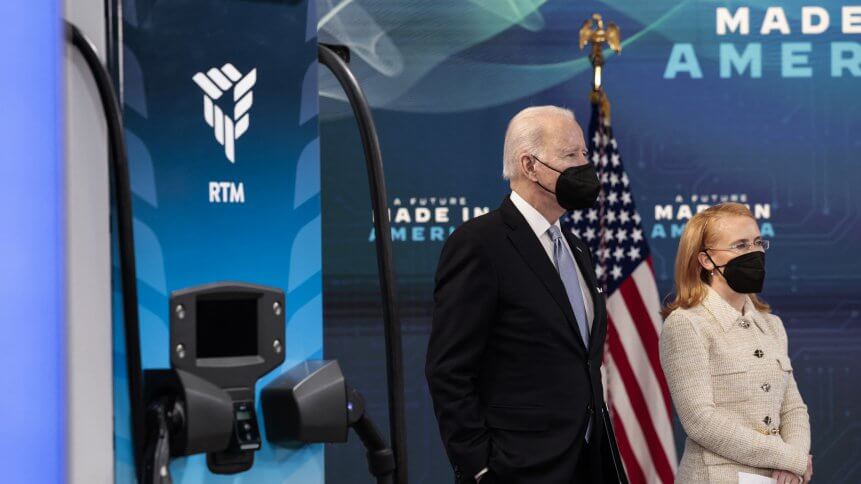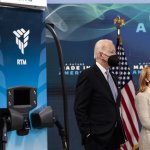Climate Bill: The US EV tax break spells disaster for automakers

- The Climate Bill aims to make EVs more affordable while freezing China out of the supply chain.
- Buyers can’t have very high incomes, the vehicles can’t cost too much, and the cars and their batteries have to meet made-in-America requirements.
- Another feature of the bill is that by 2024, at least 50% of the components in an electric car battery should come from the US, Canada or Mexico. That percentage rises to 100% in 2028.
On Friday, August 12th, the United States passed a sweeping tax, health and climate bill worth more than US$430 billion, designed to reshape the US economy. The Inflation Reduction Act, which is now on its way to President Biden’s desk to be signed into law, is expected to address inflation in two key ways: by lowering energy and health care costs for families, and by helping to bring down the deficit.
The sweeping legislation contains a slew of incentives aimed at helping individuals who want to make more climate-friendly choices. It contains, among others, tax credits that will promote the purchases of new and used EVs. However, EV automakers are not as pleased as you might expect them to be with the passing of such a landmark bill, and TechHQ dived deeper to understand why. It turns out that, as the saying goes, the devil is in the details.
For a start, as it stands, many of the bill’s EV allocations are expected to come into effect for cars put into service after December 31st, 2022, and will stay in place through 2032, according to Consumer Reports. For new EVs, a US$7,500 tax credit could be applied at the point of sale. Those who purchase used EVs could be eligible for a credit up to US$4,000. The legislation would also do away with a previous limit that kept EV manufacturers from being able to offer tax credits once they had sold 200,000 vehicles.
Can the climate bill actually supercharge the EV industry?
Although the tax credits have been widely heralded as a way to make new and used EVs more affordable, auto players have complained about the proposed US$7,500 tax credits for EV buyers, as the credits come with so many strings attached that only a few cars will qualify. Essentially, the new rules would raise a sales threshold for qualification, and at the same time would impose materials sourcing and pricing stipulations, along with personal income caps.
The tax credits from the climate bill will expire at the end of 2032, and it will be limited to trucks, vans and SUVs with suggested retail prices of no more than US$80,000 and to cars priced at no more than US$55,000. The credits will also be limited to families with adjusted gross incomes of up to US$300,000 annually.
As highlighted by Reuters, the most immediate effect of the Inflation Reduction Act would be a ban on tax credits for vehicles assembled outside North America. According to the Alliance for Automotive Innovation, that would mean about 70% of the 72 current EV and plug-in hybrids on the US market would no longer be eligible. The change therefore, “will surprise and disappoint customers in the market for a new vehicle” and “jeopardize” EV sales goals.
Even the European Union and South Korea have raised concerns, saying that the US tax credits may discriminate against foreign-made vehicles and breach World Trade Organization (WTO) rules. The ban on tax credits for vehicles assembled outside of North America will take effect as soon as President Biden signs the legislation. But the proposed legislation also includes provisions aimed at preventing the use of battery components or critical minerals derived from China.
That being said, by 2024, at least 50% of the components in an electric car battery must come from the US, Canada or Mexico, with the percentage rising to 100% by 2028, as per the Climate Bill. On the other hand, the share of the minerals in batteries from the US or a trade ally will have to be at 80% by 2026. Putting all that together, without the tax credit from the Climate Bill, those ineligible EVs would only become more costly for American consumers, and that in turn could impact demand and sales.
In turn, it would slow progress toward President Biden’s target to have half of all new vehicles sold be electric or plug-in hybrid models by 2030. On top of that, industry experts also foresee car companies taking a lot of time to revamp their supply chains enough for their products to qualify for tax credits. Fundamentally, broader steps are needed to make electric cars more affordable and to get enough of them on the road.
Currently, transportation accounts for 27% of greenhouse gas emissions in the United States, according to the Environmental Protection Agency. Only time will tell if a landmark climate bill like this will bring any significant results, especially when it comes to the adoption of electric cars.










